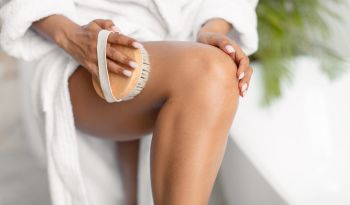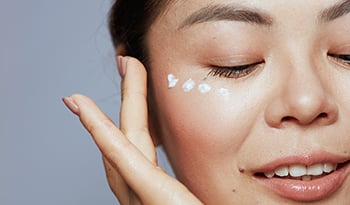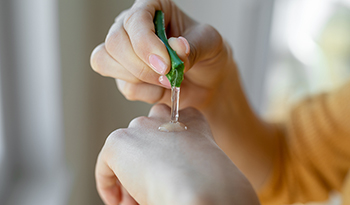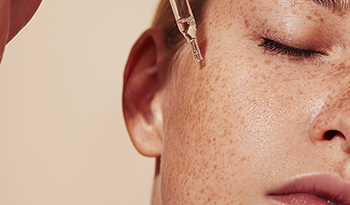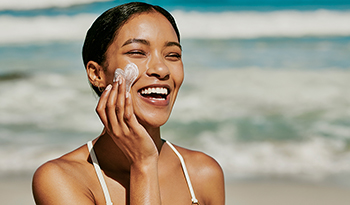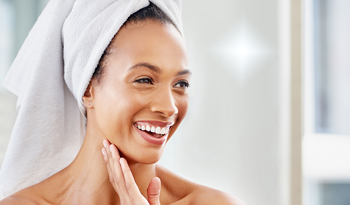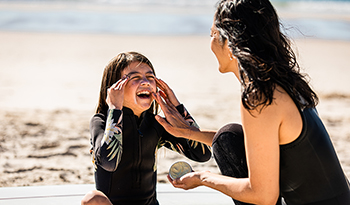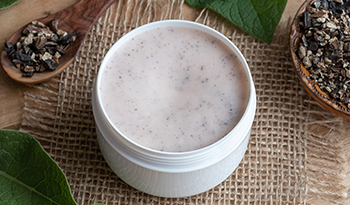Resveratrol: odličan sastojak za njegu kože

Jesmo li pronašli temelj mladosti? Potencijalno. Možda ste čuli za resveratrol, koji je u posljednje vrijeme bijes i u hrani i u njezi kože. Vjerojatno se pitate što je to i ispunjava li hype. Pogledajmo.
Što je Resveratrol?
Resveratrol je prirodno prisutna polifenolna molekula koja se nalazi u fermentiranom grožđu i više od 70 biljnih vrsta. U prirodi, resveratrol djeluje na zaštitu biljaka od ultraljubičastog zračenja, infekcija i drugih vanjskih ili okolišnih stresora. U laboratorijskim studijama pokazalo se da povećava životni vijek životinja.
Resveratrol pripada skupini antioksidativnih spojeva nazvanih polifenoli, koji se mogu pohvaliti mnogim zdravstvenim prednostima. Polifenoli imaju protuupalna, antimikrobna i fotoprotektivna svojstva. Postoje čak i studije koje pokazuju da polifenoli mogu zaštititi od bolesti poput dijabetesa, ateroskleroze, demencije i osteoporoze.
Polifenoli i mnogi drugi antioksidansi djeluju uklanjanjem slobodnih radikala koji bi inače oštetili našu staničnu DNK. Naša tijela neprestano proizvode slobodne radikale koje stvaraju sunce, okoliš, pa čak i kroz proces probave hrane. Slobodni radikali su neželjeni, ali bitan dio stanične funkcije.
Neki uobičajeni antioksidansi s kojima ste najvjerojatnije upoznati uključuju vitamin C i E. Ali polifenoli su još jedna klasa jakih antioksidanata. Nalaze se u crnom vinu, tamnoj čokoladi, bobicama i čaju, samo da spomenemo nekoliko izvora.
Resveratrol posebno dobiva na popularnosti, a skovan je kao "molekula dugovječnosti". Istražimo prednosti ovog antioksidansa i kako ga najbolje možete ugraditi u svoj životni stil i njegu kože.
Prednosti Resveratrola
Resveratrol je ne-flavonoidni polifenol, a može se naći i pod kemijskim nazivom stilbene. Pokazalo se da ima i protiv starenja i ljekovite koristi zbog svoje protuupalne prirode. Upala, znamo, igra veliku ulogu ne samo u starenju već iu procesima bolesti.
Resveratrol pomaže kod protiv starenja modulirajući skupinu proteina koji reguliraju metabolizam stanica i popravak DNK. Također inhibira enzime u tijelu koji razgrađuju kolagen, proces koji dovodi do znakova starenja poput finih linija i bora.
Kako mogu uzimati Resveratrol?
Resveratrol se može unositi oralno bilo iz hrane ili dijetetskih dodataka . Najpoznatiji izvor hrane je koža grožđa i crno vino. Ostali izvori uključuju bobice, orašaste plodove i kakao. Međutim, bioraspoloživost iz izvora hrane je ograničena. Iako možemo učinkovito apsorbirati ovaj spoj kroz naš GI sustav, on se brzo metabolizira u druge nusproizvode i teško je procijeniti koliko je aktivnog spoja dostupno. Čak i pri većim dozama, u krvotoku se nalaze samo tragovi aktivne molekule. To čini znanstvene studije izazovnim za provođenje, a trenutno ne znamo koliko je koristan oralni resveratrol, koliko je potrebno za antioksidativni učinak ili imaju li nusproizvodi potencijalnu korist.
Budući da oralni put možda nije najučinkovitiji način konzumiranja resveratrola, njegovo uključivanje u vašu rutinu njege kože ima najviše smisla.
Studije su pokazale da kada se topikalni resveratrol nanese na kožu, učinkovito apsorbira i još uvijek može imati antioksidativni učinak. U obliku vodika pokazalo se da poboljšava teksturu kože, smanjuje pojavu finih linija i bora te ujednačava ton kože. Resveratrol također ima antibakterijska i antifungalna svojstva, a ograničene studije sugeriraju da može čak pomoći u smanjenju upalnih akni uz minimalnu iritaciju ili suhoću.
Topikalni resveratrol također ima efekte posvjetljivanja kože. Studije su pokazale da može pomoći u smanjenju hiperpigmentacije od akni, oštećenja od sunca ili drugih vanjskih ozljeda kože. Na kraju, pokazalo se da pomaže u smanjenju crvenila na koži i može biti odličan topikalni tretman za one koji su pogođeni rozaceom ili čestim crvenilom lica. U studiji u maloj skupini, pojedinci koji su koristili topikalni resveratrol i zeleni čaj prijavili su smanjenje crvenila lica za samo šest tjedana upotrebe.
Kako uključiti resveratrol u svoju dnevnu rutinu
Zdrava i blistava koža zahtijeva dobro uravnoteženu prehranu ispunjenu hranjivim tvarima, učinkovit režim njege kože i dobre životne navike. Ne bi trebalo reći da pušenje, sunčanje i nedostatak sna nisu nikakvi. Iako su podaci ograničeni o bioraspoloživosti resveratrola oralnim unosom, ipak preporučujem konzumiranje kombinacijom prehrane i topikalne primjene.
Većina hrane koja sadrži visoku razinu resveratrola dobra je za naše tijelo i sadrži mnoge druge antioksidanse korisne u borbi protiv slobodnih radikala. Ako ste više osoba s tabletama, preporučujem suplemente od 100-200 mg dnevno, ali opet, podaci su ograničeni o apsorpciji dodataka prehrani i učinkovitosti.
Za lokalnu primjenu postoje različite formulacije resveratrola u proizvodima za njegu kože: serumi, hidratantne kreme, kreme, pa čak i u kremi za sunčanje. Resveratrol se može naći u formulacijama s drugim antioksidansima, poput vitamina E, kako bi se poboljšala njegova stabilnost i prodiranje kože.
Osobno volim koristiti antioksidanse u serumima. Serumi su u osnovi proizvodi koji sadrže super visoke koncentracije aktivnog sastojka koji pomažu u zaštiti kože i sprečavaju i nadamo se da preokreću znakove starenja. No, za razliku od seruma vitamina C, koji bi se trebali nanositi ujutro kako bi se ublažila šteta od sunca, resveratrol treba nanositi noću kako bi našoj koži dao ono što joj je potrebno da se popravi od svih okolišnih i unutarnjih oštećenja iz dana.
Na kraju, imajte na umu da su stabilnost i penetracija ključni kada tražite pravi proizvod. Kao i proizvodi s vitaminom C, proizvodi resveratrola mogu se razgraditi ultraljubičastim zračenjem. Provjerite je li vaš proizvod u neprozirnoj bočici koja je hermetički zatvorena kako bi se povećala njegova snaga.
ODRICANJE OD ODGOVORNOSTI: Ovaj Wellness kutak nije namijenjen za pružanje dijagnoza...

















































































 Sadržaj
Sadržaj



